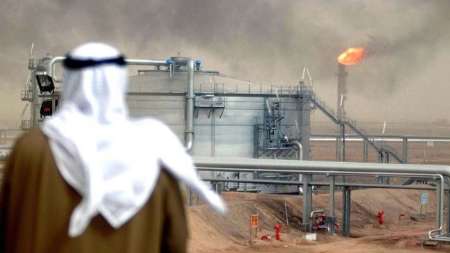ID :
352840
Mon, 12/29/2014 - 12:45
Auther :
Shortlink :
https://oananews.org//node/352840
The shortlink copeid
Daily urges S.Arabia to play its last card well

Tehran, Dec 29, IRNA - An English-language paper on Monday wrote that Saudi Arabia has turned to the oil market and has drawn its swords against Iran-Russia aimed to force them to back off.
This indicates that playing with oil prices is certainly Riyadh’s last-ditch effort and its last card, added ˈIran Dailyˈ in its Opinion column.
But once calm is restored to the global oil market, the monarchy will be totally disarmed and will have no way but to seriously review its regional policies.
The widening gulf between Iran-Saudi Arabia stems from four things. The most significant is Iran’s growing influence in the region and rapprochement with the world. Its regional and international status began to improve after President Hassan Rouhani rose to power in August 2013, highlighted the paper.
Since then, the country has played with various cards in regional games and managed to steer developments in Lebanon, Syria, Iraq, and Yemen in its favor and against the interests and plans of Saudi Arabia, it noted.
Iran’s ties with Western countries, especially with Europe, have been on the mend due the incumbent government’s prudence and open negotiations with the US which used to be held secretly.
This rapprochement has caused concerns among Saudis as they fear Iran’s international position would be enhanced in the wake of a final nuclear agreement with the West.
Riyadh has shown that it does not follow a logical and diplomatic approach in regional rivalries and with regards to Iran, it has employed hostile measures.
In the past few years, Saudi Arabia and Israel become closer in ties and even Saudi Prince Turki al-Faisal wrote an article in the Israeli newspaper Haaretz, showing respect to Israeli officials.
There are also reports that the Arab kingdom is ready to sell oil to Israel in an attempt to bridge gaps. This is the second reason overshadowing relations between Tehran and Riyadh.
The third marring bilateral ties is Saudi Arabia’s domestic affairs. The governmental structure in Saudi Arabia underwent radical changes in the past two years, with powerful Bandar bin Sultan being removed as president of General Intelligence.
The changes were going on in favor of Iran until a power struggle emerged over the succession of ailing King Abdullah. Under such conditions, world powers especially the US, do not want Iran and Saudi Arabia to improve ties, particularly before it wins as much concessions from Tehran over its nuclear activities, it noted.
Saudi Arabia’s failure to topple Syrian President Bashar al-Assad and the victory of Syria’s friends namely Iran and Russia are the fourth reason. Now Russia has proposed a plan with Egypt as mediator to make reconciliation between the Syrian government and the opposition. If this happens, it would be a significant setback for the oil-rich country in the region./end





